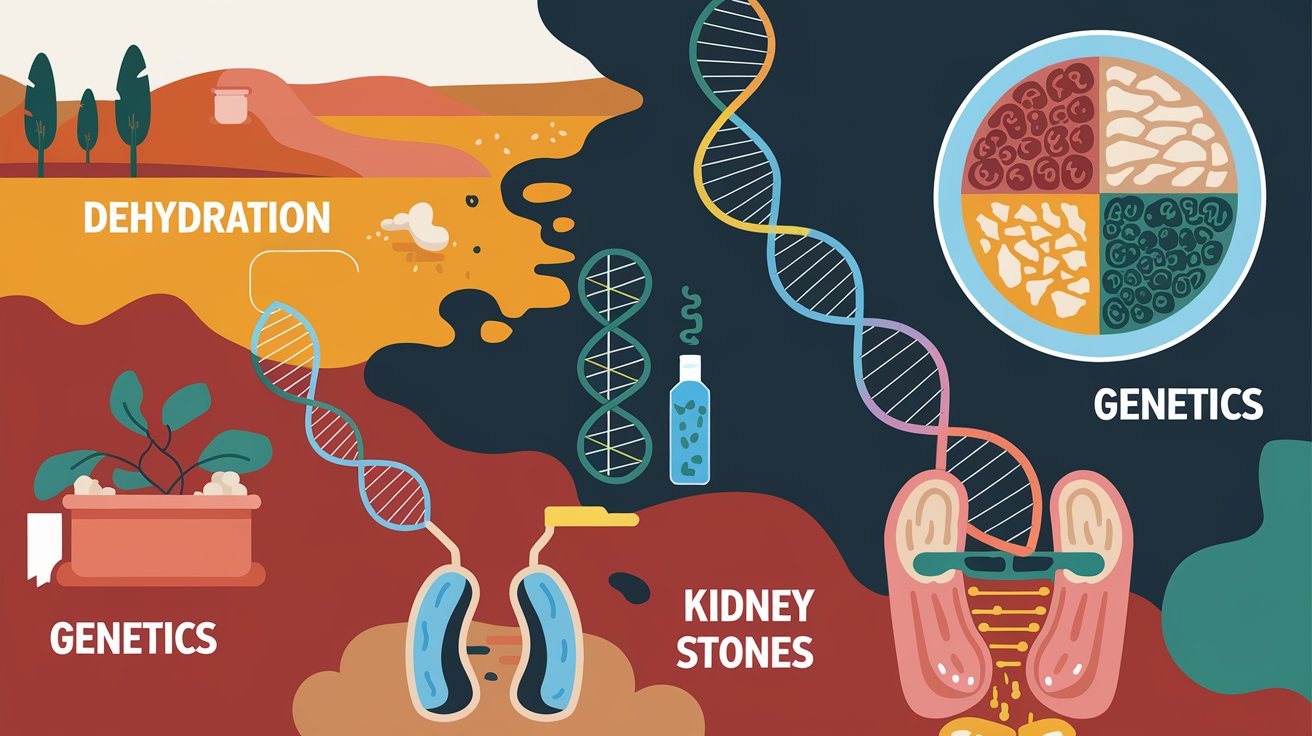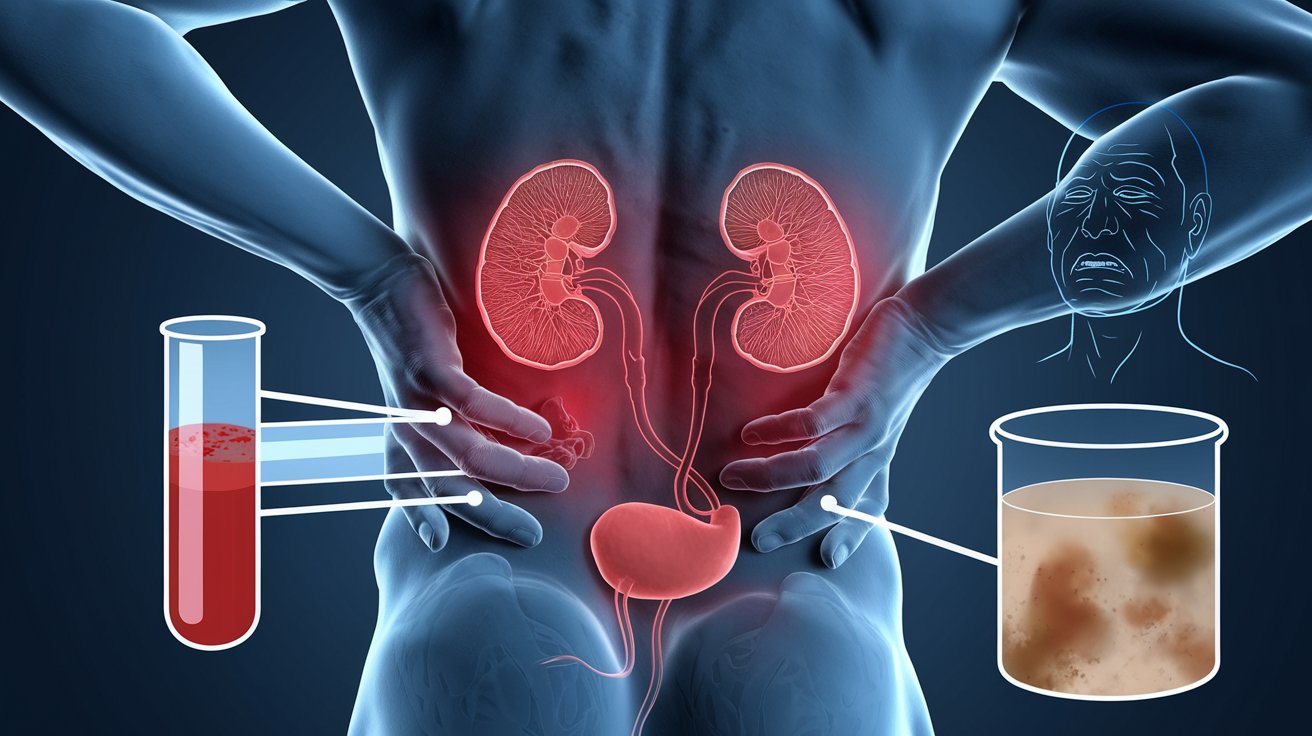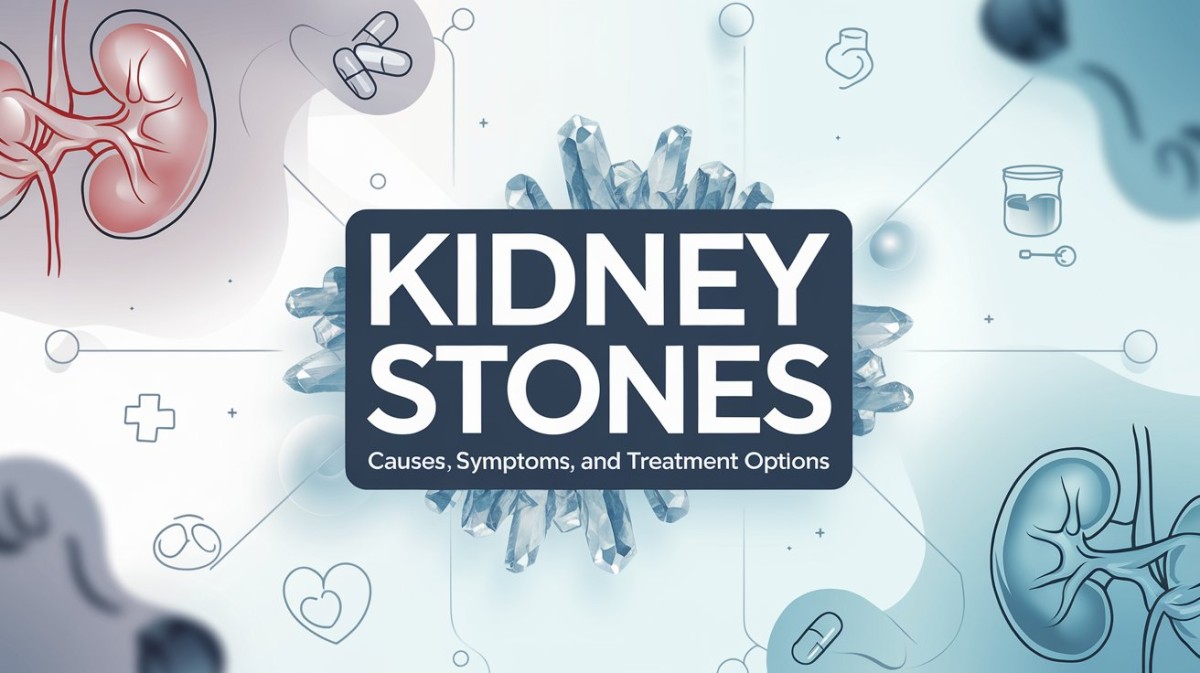Have you ever got a sudden and very severe spasm of pain in your back or stomach which appeared to be quite unrelated to anything that had happened to you recently? Could kidney stones be the reason of such discomfort? Knowledge about kidney stones not only cause and sign but also prevention and treatment can assist you a lot. It is now time to look at causes, symptoms as well as the various methods of treating kidney stones in detail.
What Are Kidney Stones?
Nephrolithiasis is the medical term for kidney stones – hard deposits of crystalline minerals shaped in the kidneys. It forms when urine contains high concentrations of certain chemicals like calcium, oxalate, and uric acid which crystallizes and coagulates. These deposits gradually thicken to become stones and can range in size from a particle of sand right up to that of a golf ball.
Causes of Kidney Stones

❖ Dehydration: Consuming less water during the day causes the urine to be thick and hence increase chances of mineral formation.
❖ Dietary Habits: Low dietary fluid, calcium oxalate, sodium, sugar, or protein also raises the risk of developing kidney stones.
❖ Genetics: Kidney stones can also be genetic and people with family history of this disease should be cautious.
❖ Medical Conditions: Stone formation can be caused by some diseases such as gout or hyperparathyroidism or other illnesses such as recurrent urinary tract infections.
❖ Medications: Some medications, including diuretics, or calcium-based antacids might increase one’s chances of developing kidney stones.
Symptoms of Kidney Stones
Kidney stones may be asymptomatic as long as they are immobile or do not obstruct urine passage. Common symptoms include:
❖ Severe Pain: Described as being some of the worst pains ever experienced, this type of pain is normally localised on the lower back, side or abdomen.
❖ Blood in Urine (Hematuria): Since they are mineralised concretions, stones may rub on the mucosa of the urinary tract causing bleeding.
❖ Frequent Urination: Frequent need to pee may be due to stones situated close to the bladder.
❖ Nausea and Vomiting: Such symptoms are usually indicative of a condition that is accompanied by severe pain.
❖ Cloudy or Foul-Smelling Urine: May be as a result of an infection or accumulation of waste products.
Types of Kidney Stones
Understanding the type of kidney stone can guide treatment and prevention:
❖ Calcium Stones: The most frequent, may be formed from calcium oxalate or calcium phosphate crystals.
❖ Uric Acid Stones: Created because of hypericism of uric acid which is attributed to diet of red meat and seas foods.
❖ Struvite Stones: Commonly resulting from an infection of the urinary system and can proliferate rapidly.
❖ Cystine Stones: These are rare and are hereditary and caused by a condition known as cystinuria.
Diagnosis of Kidney Stones

To confirm the presence of kidney stones, doctors may use:
❖ Urinalysis: Test for bacteria, crystals, infected, or the presence of traces of blood in the urine.
❖ Imaging Tests: May use computed tomography scan or an ultrasound and X ray to check for stones and size them.
❖ Blood Tests: Test calcium and uric acid.
Treatment Options for Kidney Stones
The treatment approach depends on the size, type, and severity of the kidney stones:
1. Home Remedies for Small Stones:
❖ Increased Water Intake: Small stones can be eliminated by drinking 2–3 liters of water per day.
❖ Pain Management: If someone is really hurting, basic medicines one can buy from a pharmacy such as ibuprofen or even paracetemol will help.
❖ Dietary Changes: The patient should avoid using salt and should not take food that contains oxalates like spinach in order to stop further growth.
2. Medications:
❖ Alpha-Blockers: Ease the passage of renal stones through the urinary tract by making the muscles of the tract more relaxed.
❖ Potassium Citrate: Good in the prevention of calcium stone formation since it increases the pH of urine.
3. Medical Procedures for Larger Stones:
❖ Extracorporeal Shock Wave Lithotripsy (ESWL): Breaks stones into smaller pieces using sound waves, making them easier to pass.
❖ Ureteroscopy: A thin tube is inserted into the urinary tracts in order to diagnose as well as remove the stones.
❖ Percutaneous Nephrolithotomy: One of the surgical procedures smaller and less complex stones, but can also be applied when needed.
❖ Open Surgery: Seldom applied, used for extremities only.
Preventing Kidney Stones
Alternative prevention is always superior to treatment. Here are some tips to minimize your risk:
❖ Stay Hydrated: It is useful to drink about 2 liters of water per day.
❖ Limit Salt Intake: Sodium has been said to cause calcium in the urine to rise hence making one develop stones.
❖ Monitor Calcium Intake: Avoid getting calcium from food supplements but from your normal diet.
❖ Reduce Oxalate Consumption: Reduce intake of problematic foods such as rhubarb, beets and chocolate.
❖ Maintain a Healthy Weight: A number of factors have been mentioned that include obesity is one of the risk determinants of the formation of kidney stones.
When to See a Doctor
Seek medical attention immediately if you experience:
❖ Severe, unrelenting pain.
❖ Blood in your urine.
❖ Symptoms of an infection including temperature elevations and shivers.
I would recommend an annual health checkup for every person especially for those who are 40 years or above.
The checkup should include:
❖ Routine blood tests CBC Liver function
❖ Kidney function
❖ Thyroid function
❖ Lipid profile
❖ Urine test
❖ HbA1C
Certain cancer screening blood tests like CA19.9, CEA, PSA (men) CA125(Women)
Along with that:
❖ Ultrasound Abdomen and Pelvis
❖ Chest xray
❖ ECG
❖ 2D Echo
❖ TMT
In any multispeciality hospital, all of these tasks can be completed in half a day and the going rate would be roughly Rs 6000.
Every five years, endoscopy and colonoscopy are performed to screen for colon, stomach, and esophageal cancer.
Women should get a mammogram every year; this test is typically covered under the comprehensive checkup package.
Owing to the sharp increase in cardiac illnesses, particularly in the younger population, I would also advise getting a CT coronary angiography once every five years to look for early heart blockages.
The most crucial elements of maintaining good health are eating a diet rich in vegetables and avoiding fried and sugary foods.
Constantly eat until 80% full. and not before you are able.
The American Heart Association suggests doing cardiac exercise five times a week, which includes two days of weight training, to raise your heart rate to 120 beats per minute.
For such more related content don't forget to check out our blogs on Treatments.
Key Takeaways
Kidney stones are not rare; they are quite painful but can be treated if diagnosed early enough and carried out alongside necessary life changes. Once you have known the causes of the symptoms you can work extra hard to make sure that they do not happen. Seek the services of a doctor if you think you have kidney stones for proper diagnostic and treatment procedures to be undertaken.

